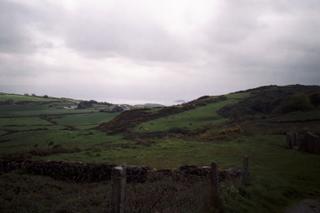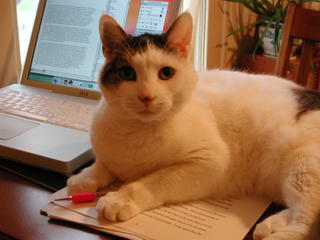Fabulous gal poets, the brain-wringing, brain-ringing, frame-swinging youngish, newish gal poets, sprinkle the world with effervescence. The Best American Poetry 2004 (guest edited by the raucously awesome Lyn Hejinian, NY: Scribner, 2004) includes the brightly dazzling work of
Danielle Pafunda,
Heidi Peppermint (now Heidi Lynn Staples, a change in name that simply breaks the heart of peppermint lovers world wide, as well as those who dream of having such a refreshing last name), and Jeni Olin. Brightly simply must flash an enthusiastic thumbs-up to all three.
From Olin's "Blue Collar Holiday"
And the thin nude branches all snow-furred
Like an X ray of infant bronchitis. Wrist-slitting stuff.
From Pafunda's "RSVP"
I won't come. I won't come
with a pretty pity present. I won't
put on my pity party dress with the special
ribbon in my pity pony tail. I won't play
From Heidi Peppermint's "Real Toads"
terrible vision. I don't think I can fall asleep
if the door is open, do you? Finally,
we bridge to word it, ticking off our
trues.
Miss Emily would flip for Peppermint, Pafunda, and Olin; thus the Dickinsonian oracle decrees:
Had I not seen the Sun
I could have borne the shade
But Light a newer Wilderness
My Wilderness has made -
(E. Dickinson, 1249)




